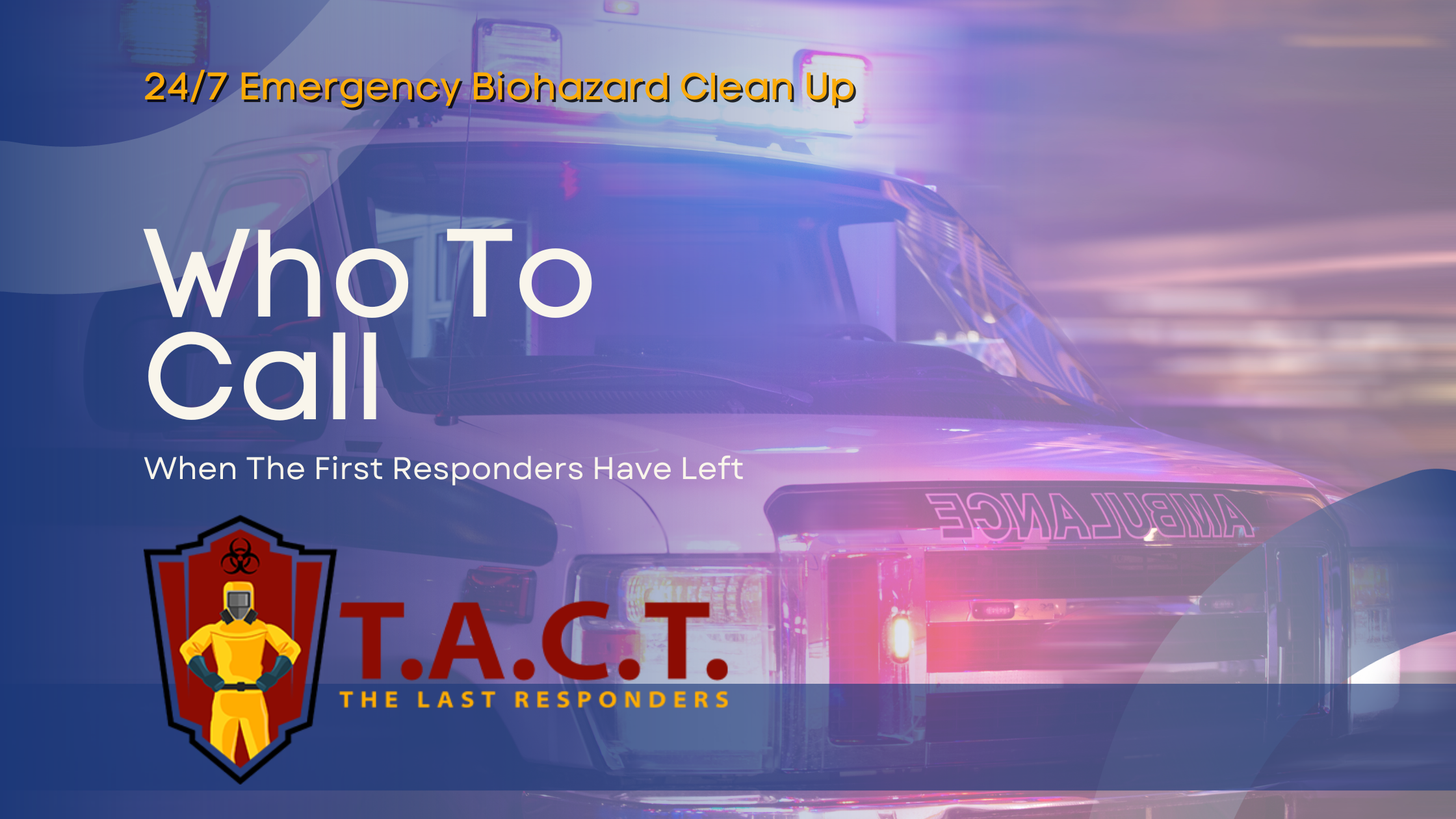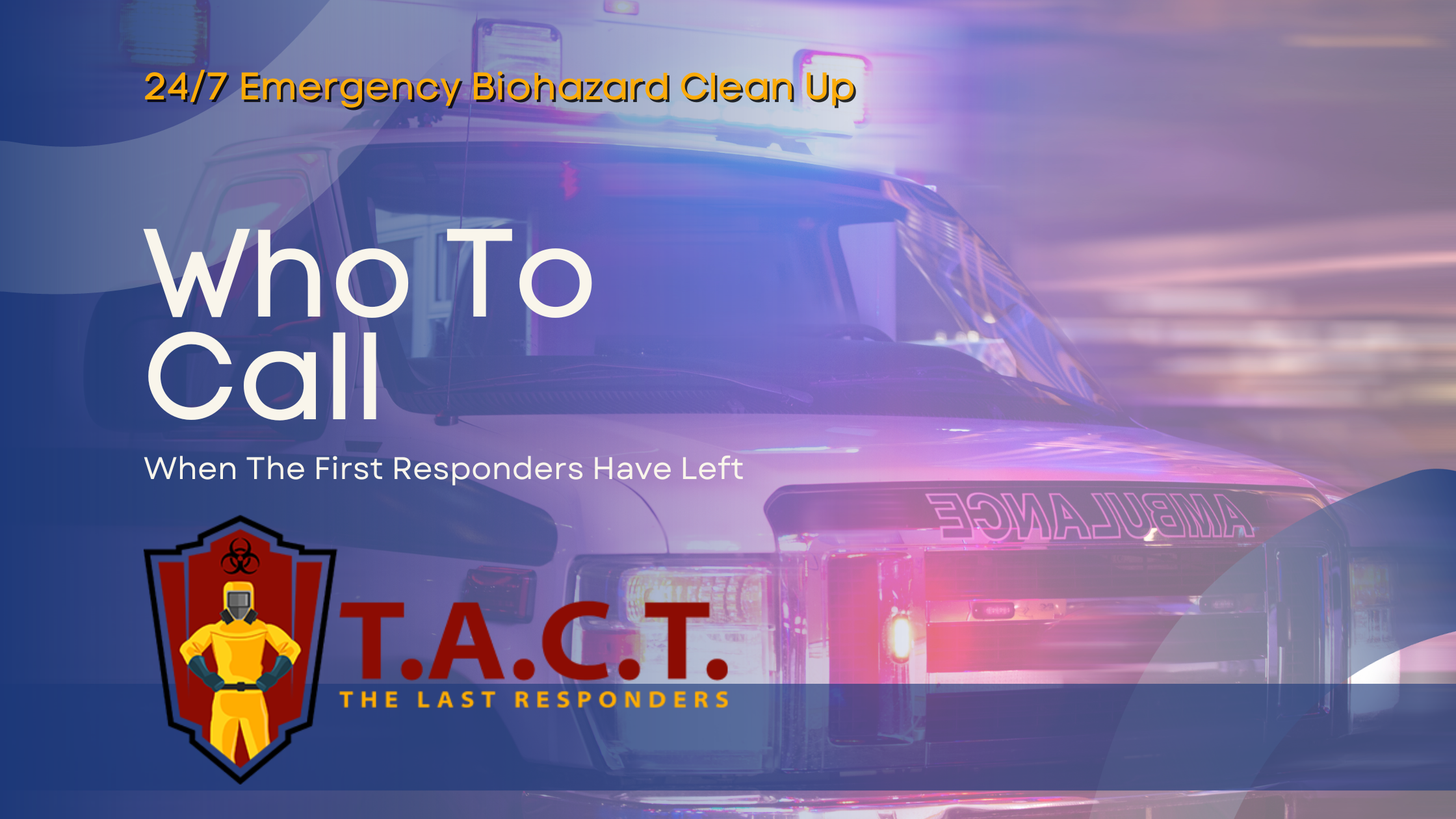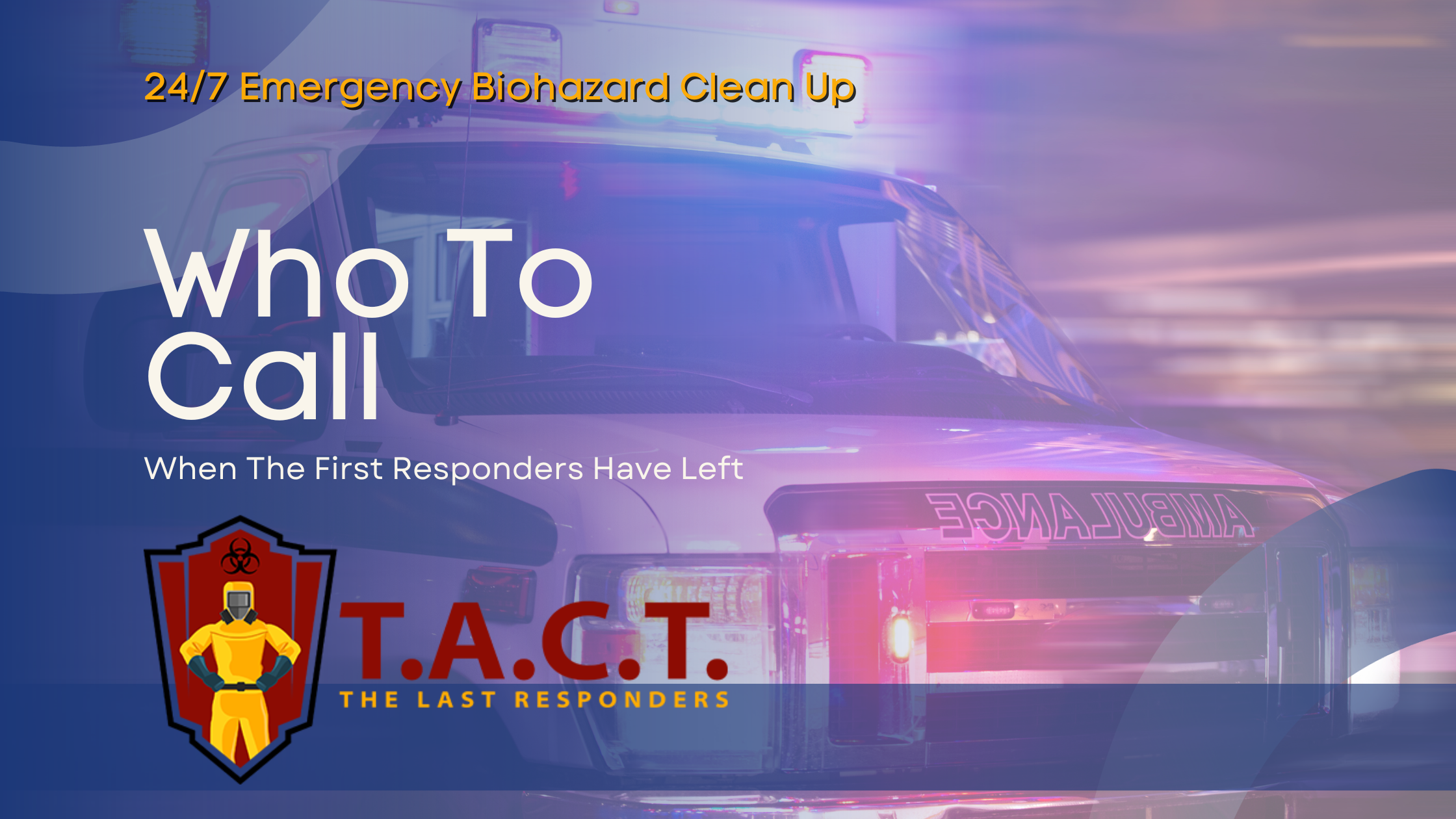Your guide to a rewarding career in Biohazard Cleanup
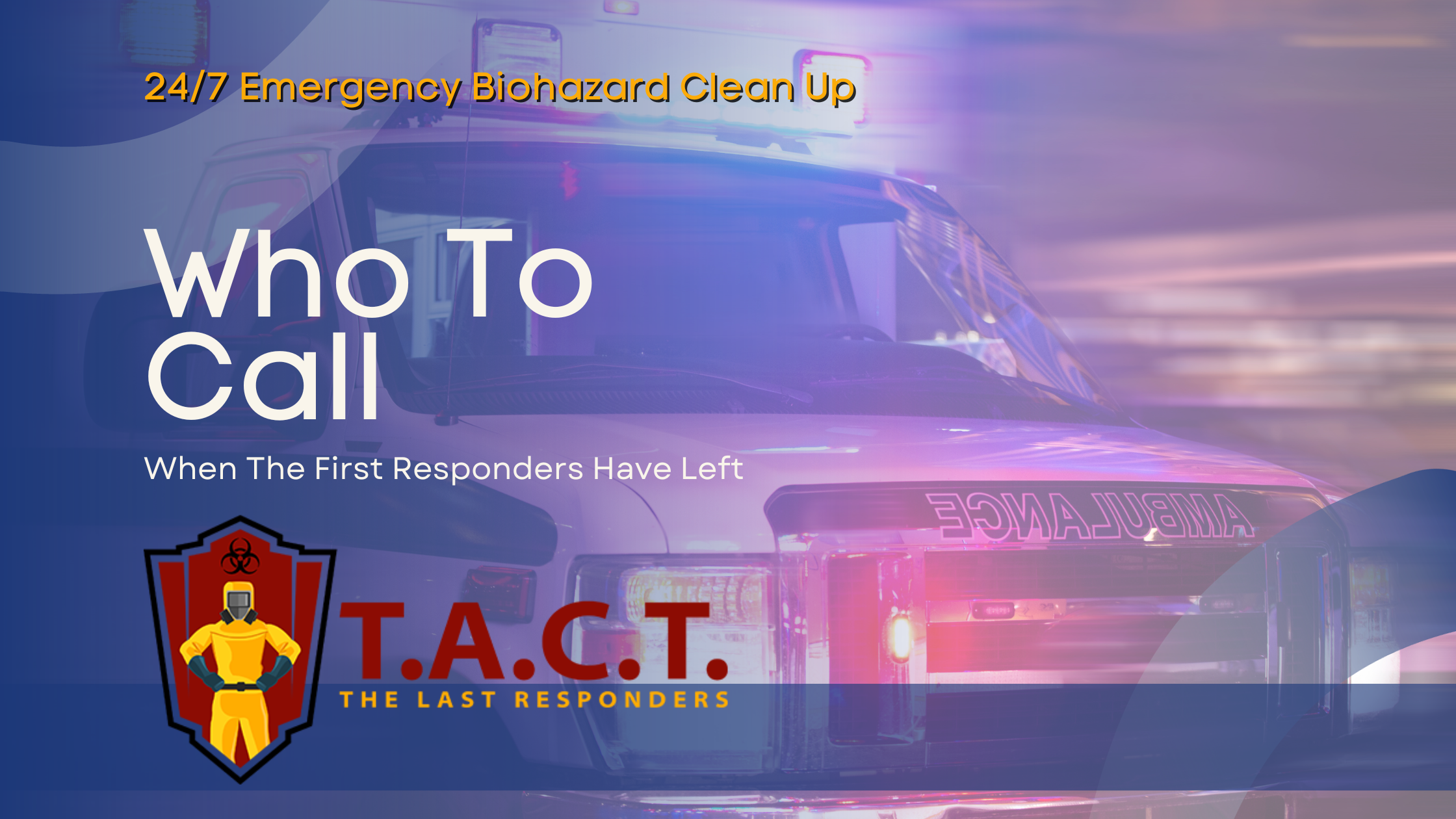
This is a new Text block. Change the text.
Top Accident Cleanup Jobs: Your Guide to a Rewarding Career in Biohazard Cleanup
Accident cleanup jobs are essential for restoring safety and cleanliness after incidents like accidents and crime scenes. These roles involve handling biohazards, meticulous cleaning, and ensuring spaces are safe. If you’re interested in this career, this guide will cover job duties, required skills, and career opportunities.
Key Takeaways
Accident cleanup jobs are vital for public safety, requiring specialized training and skills to handle biohazard materials effectively and empathetically.
Physical and mental strength, attention to detail, and flexibility are essential traits for success in the demanding accident cleanup industry.
The industry offers diverse career growth opportunities, including management roles and business ownership, making it a rewarding choice for those seeking a meaningful profession.
Understanding Accident Cleanup Jobs
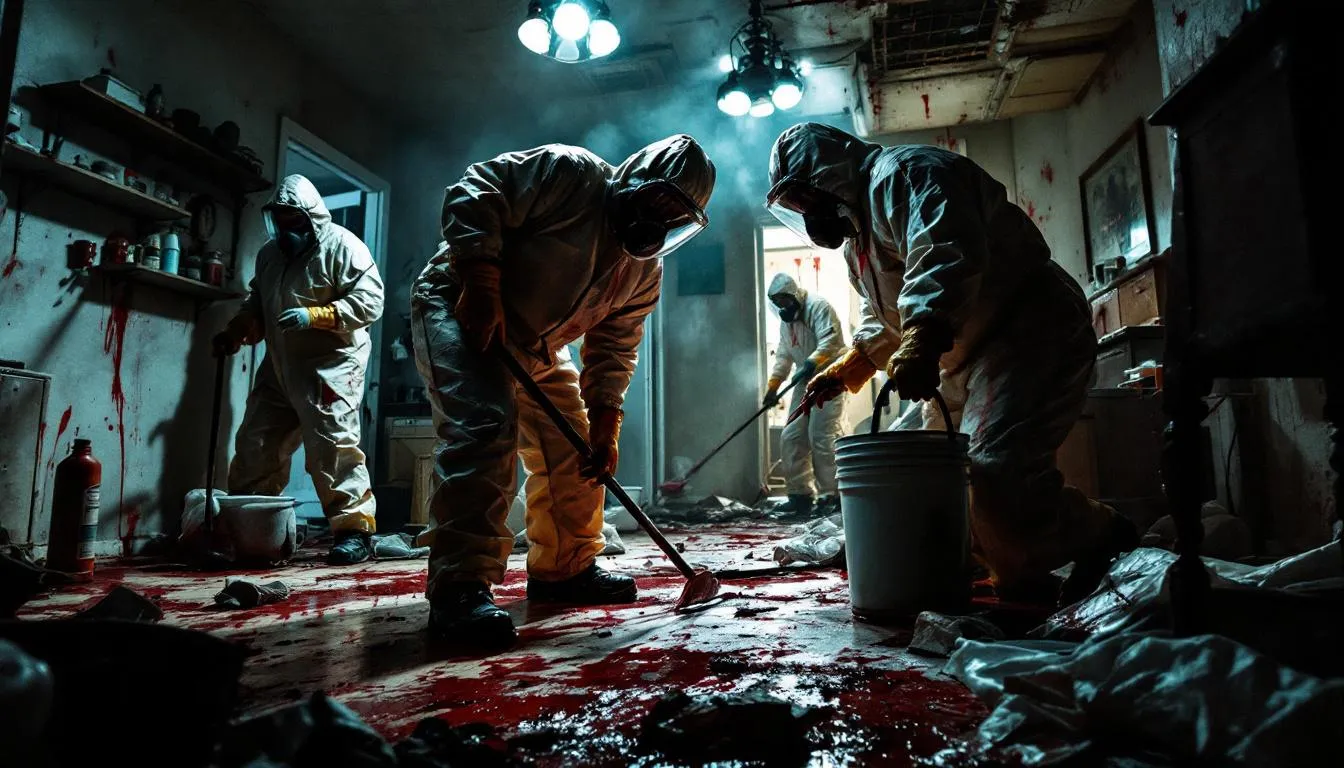
Accident cleanup jobs are vital for public safety and restoring areas after incidents like crime scenes and accidents. These jobs involve:
Handling various contaminants, including blood, bodily fluids, tissue, and other biohazardous materials that can pose significant health risks.
Starting the cleanup and restoration process after law enforcement finishes processing a scene.
Cleaning, disinfecting, and deodorizing the affected area, including crime scene cleanup.
The process is meticulous and requires specialized methods to ensure thorough decontamination. Cleanup teams must handle these tasks with empathy and respect, especially when dealing with properties and individuals affected by the incidents. Proper training is crucial for safety and compliance with health regulations, making this a highly specialized field.
Whether you’re cleaning up after a minor accident or a major crime scene, the goal remains the same: to prioritize restoring safety and normalcy to the affected area. This not only helps the community heal but also prevents potential health hazards from lingering in the environment.
Essential Requirements for Accident Cleanup Jobs
The field of accident cleanup is growing rapidly, presenting numerous job opportunities and potential for career advancement. As public awareness of biohazard cleanup increases, there’s a growing demand for skilled workers who can handle the complexities of these jobs. However, working in this field is not for everyone. It requires a unique blend of physical and mental attributes to succeed.
Excelling in accident cleanup jobs requires meeting several key requirements under various circumstances:
Physical and mental strength
Attention to detail
Flexibility Each of these requirements plays a crucial role in ensuring the safety and effectiveness of cleanup operations.
Physical and Mental Strength
Accident cleanup workers need to be in good physical condition to handle the demands of lifting heavy equipment and wearing protective gear. This job often involves strenuous activities that require high physical stamina. Beyond physical strength, mental fortitude is equally important. Professionals must cope with stressful and often distressing environments, maintaining emotional stability while managing important things.
This line of work often involves emotionally challenging scenes. The ability to process these experience without compromising your mental health is crucial. Balancing physical and mental strength allows workers to perform their duties effectively while maintaining their well-being.
Attention to Detail
Attention to detail is critical in accident cleanup. Thorough and safe cleaning processes are essential to protect the health of both the workers and the community. Overlooking even the smallest detail can result in hazardous situations where biohazards are not fully eradicated.
Cleanup professionals need keen observational skills and a disciplined approach to address all elements of a scene. This meticulousness ensures safety and instills confidence in the communities they serve, knowing that every aspect of the cleanup is handled with responsible precision.
Availability and Flexibility
Accident cleanup professionals should be prepared to work irregular hours, including nights and weekends. Emergencies can occur at any time, and the ability to respond promptly is crucial for maintaining safety and providing timely service. This aspect of the job demands high flexibility and availability.
Availability during non-traditional hours enables cleanup professionals to address emergencies effectively and maintain safety. This flexibility is not only an excellent opportunity for those seeking varied work hours at any age but also a vital component of delivering comprehensive and effective cleanup services.
Training for Accident Cleanup Jobs
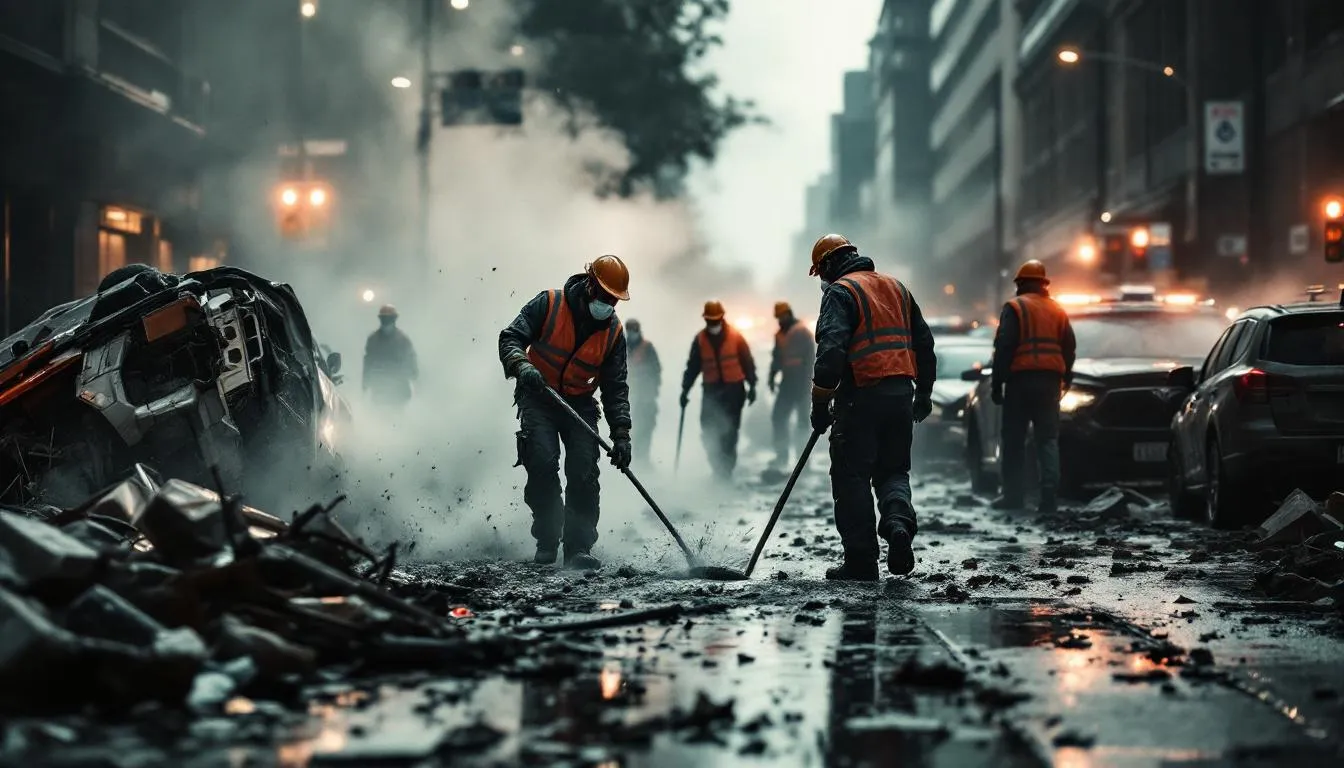
Training is crucial when preparing for a career in accident cleanup. Professionals must complete specialized training and obtain relevant certifications for handling biohazard materials. This training ensures that they adhere to strict health and safety regulations during their work.
Accident cleanup requires a blend of specific skills, including technical knowledge about biohazard materials and emotional intelligence to handle sensitive situations. These skills are essential for safely removing biohazardous materials and ensuring the thorough cleaning and restoration of the affected areas.
Safety and Personal Protection
Meticulousness is essential for ensuring thorough decontamination and safety at accident sites. Personal protective equipment (PPE) is a crucial component of safety training for accident cleanup workers. Professionals learn the correct usage and disposal of cleaning chemicals to minimize health risks.
Understanding the risks of exposure to harmful substances is a vital part of their training. Professionals must be familiar with various biohazards, including bloodborne pathogens, and know how to protect themselves and others from these dangers.
Handling Chemicals and Equipment
Training also includes the safe operation of power tools used in cleanup processes. Professionals must know the use of various cleaning agents and their proper application during cleanup operations. This knowledge is crucial for safely handling chemicals and equipment during accident cleanup operations.
Thorough training enhances efficiency and ensures the safety of the cleanup crew and the public. This comprehensive training prepares professionals to handle the complexities of accident cleanup with expertise and competence.
The Role of Accident Cleanup Teams
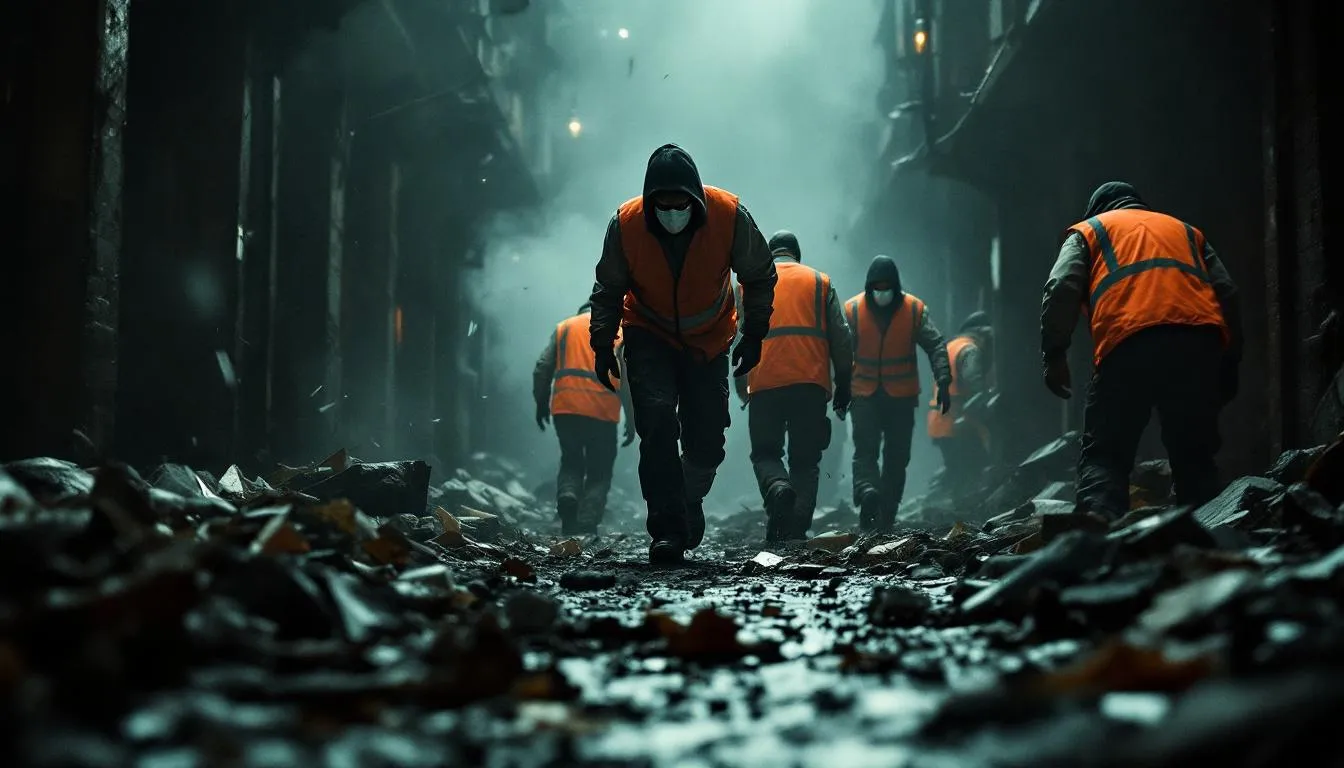
Accident cleanup teams are essential in managing the overall response to incidents. They often collaborate with law enforcement and medical personnel to ensure comprehensive management of the scene. This collaboration is essential for effectively managing traumatic incidents and ensuring the safety of everyone involved.
The job fosters a strong sense of camaraderie among people colleagues, as they share unique experiences and support each other through challenging tasks. Effective teamwork and communication are crucial for the focus of cleanup operations and the culture of collaboration that reflects our values. Join the word effort to enhance this supportive environment.
Teamwork and Communication
Effective communication within accident cleanup teams is crucial for safely and efficiently executing cleanup operations. Coordination among team members ensures that tasks are carried out efficiently and safely.
The success of cleanup operations often depends on the ability of team members to communicate openly about challenges and progress. This open communication helps in addressing any issues promptly and ensures that the cleanup process runs smoothly.
Coordinating with Other Professionals
Coordination with other professionals is crucial for accident cleanup teams. Cleanup teams often work alongside police to manage the scene and secure necessary information for their operations. Medical personnel confirm the status of victims and ensure the area is safe for cleanup activities.
Collaboration with forensic teams and fire services is also vital for comprehensive scene management and cleanup. This coordination addresses all aspects of the incident, providing a thorough and effective response.
Career Growth and Opportunities in Accident Cleanup

The accident cleanup sector offers various paths for career advancement, including management roles and specialized cleaning services. This field provides numerous opportunities for those looking to grow and develop their careers.
Whether starting or advancing, many avenues can be explored in this dynamic industry. The following sections explore starting your own business and the long-term career prospects in accident cleanup.
Starting Your Own Business
Creating a business plan is essential for a new accident cleanup company. This plan should detail operations, market research, and financial projections. Successful accident cleanup businesses often need registration with local health regulations, especially when dealing with biological waste.
Starting a business in this field can be highly rewarding. It allows you to set your own path and make a significant impact in your community by providing essential services.
Long-term Career Prospects
There is significant job stability in the accident cleanup industry due to the consistent demand for biohazard and trauma cleaning services. Specializing in areas like biohazard cleanup can enhance job stability and open up additional avenues for career growth.
The steady demand for trauma cleanup services offers long-term career prospects for trained professionals. This field offers an excellent opportunity for those looking to build a stable and rewarding career.
The Rewards of Accident Cleanup Jobs

Accident cleanup jobs offer numerous benefits, both emotional and community-focused in the world. Despite the challenges, many professionals find fulfillment in restoring spaces to a live condition and contributing positively to the community’s recovery.
Providing vital support to grieving families during their most challenging times can be incredibly rewarding. Professionals in this field often find satisfaction in knowing that their work can provide potential health hazards through thorough cleaning and decontamination.
Challenges Faced by Accident Cleanup Professionals
The emotional toll of cleaning up after accidents requires workers to have strong mental resilience. Exposure to traumatic scenes can lead to significant emotional distress, including long-term psychological effects. Professionals must manage their mental well-being and engage in stress-reducing activities to cope with their experiences.
Despite these challenges, camaraderie and support among team members help professionals navigate the emotional aspects of the job. Maintaining mental resilience is essential for performing their duties effectively while protecting their health.
Summary
Accident cleanup jobs are not only vital for public safety but also offer a unique and rewarding career path. The field requires a blend of physical and mental strength, attention to detail, and flexibility. Specialized training and effective teamwork are crucial for success in this demanding yet fulfilling line of work.
If you’re looking for a career that allows you to make a significant impact while providing essential services, accident cleanup might be the perfect fit. Embrace the challenges and rewards of this career, and you’ll find yourself contributing positively to the community and making a real difference in people’s lives.
Frequently Asked Questions
What are the primary responsibilities of an accident cleanup professional?
Accident cleanup professionals play a crucial role in ensuring safety by cleaning and disinfecting areas impacted by accidents or crime scenes, managing biohazards like blood and bodily fluids. Their work helps restore peace of mind and a sense of normalcy in challenging situations.
What kind of training is required for accident cleanup jobs?
To excel in accident cleanup jobs, you'll need specialized training in safety protocols, biohazard material handling, and proper use of personal protective equipment. By obtaining these certifications, you're not just preparing for the job; you're also ensuring a safer environment for everyone.
What are the emotional challenges faced by accident cleanup professionals?
Accident cleanup professionals often face emotional distress from witnessing traumatic incidents, making mental well-being and seeking support essential for their resilience. Prioritizing your mental health is a vital step toward overcoming these challenges!
Are there opportunities for career growth in the accident cleanup industry?
Absolutely, the accident cleanup industry is ripe with opportunities for growth, from advancing into management positions to launching your own business. Embrace these possibilities and pave your way to success!
What makes accident cleanup jobs rewarding?
Accident cleanup jobs are rewarding because you get to restore spaces and support grieving families while preventing health hazards. The flexibility and positive community impact make this work truly fulfilling.

